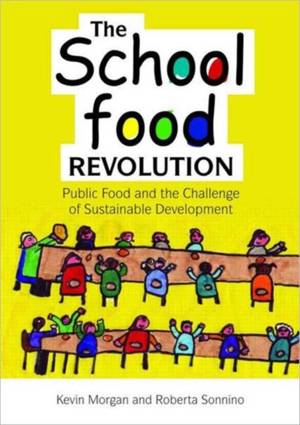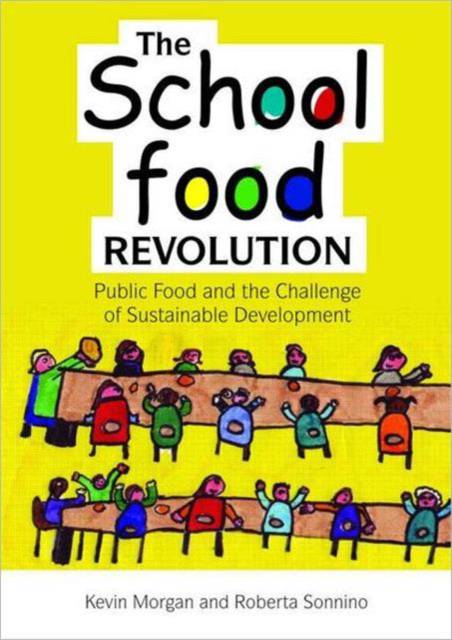
- Retrait gratuit dans votre magasin Club
- 7.000.000 titres dans notre catalogue
- Payer en toute sécurité
- Toujours un magasin près de chez vous
- Retrait gratuit dans votre magasin Club
- 7.000.0000 titres dans notre catalogue
- Payer en toute sécurité
- Toujours un magasin près de chez vous
The School Food Revolution
Public Food and the Challenge of Sustainable Development
Kevin Morgan, Roberta Sonnino
Livre broché | Anglais
83,95 €
+ 167 points
Description
'The School Food Revolution is an important book that deserves success.' Journal of Organic Systems 'A great new book that describes how 'the humble school meal' can be considered as 'a litmus test of... government's political commitment to sustainable development.' Peter Riggs, Director, Forum on Democracy & Trade 'The School Food Revolution should be an inspiration for policy makers and for school heads and school canteen operators.' Tom Vaclavik, President, Organic Retailers Association School food suddenly finds itself at the forefront of contemporary debates about healthy eating, social inclusion, ecological sustainability and local economic development. All around the world it is becoming clear - to experts, parents, educators, practitioners and policy-makers - that the school food service has the potential to deliver multiple dividends that would significantly advance the sustainable development agenda at global, national and local levels. Drawing on new empirical data collected in urban and rural areas of Europe, North America and Africa, this book offers a timely and original contribution to the school food debate by highlighting the potential of creative public procurement - the power of purchase. The book takes a critical look at the alleged benefits of school food reform, such as lower food miles, the creation of markets for local producers and new food education initiatives that empower consumers by nurturing their capacity to eat healthily. To assess the potential of these claims, the book compares a variety of sites involved in the school food revolution - from rural communities committed to the values of 'the local' to global cities such as London, New York and Rome that feed millions of ethnically diverse young people daily. The book also examines the UN's new school feeding programme - the Home Grown Programme - which sees nutritious food as an end in itself as well as a means to meeting the Millennium Development Goals. Overall, the book examines the theory, policy and practice of public food provisioning, offering a comparative perspective on the design and delivery of sustainable school food systems. The cover illustration is by a Roman child. The authors would like to thank the City of Rome (Department for School and Educational Policies) for permission to reproduce it.
Spécifications
Parties prenantes
- Auteur(s) :
- Editeur:
Contenu
- Nombre de pages :
- 256
- Langue:
- Anglais
Caractéristiques
- EAN:
- 9781849710862
- Date de parution :
- 30-04-10
- Format:
- Livre broché
- Format numérique:
- Trade paperback (VS)
- Dimensions :
- 154 mm x 232 mm
- Poids :
- 408 g

Les avis
Nous publions uniquement les avis qui respectent les conditions requises. Consultez nos conditions pour les avis.






